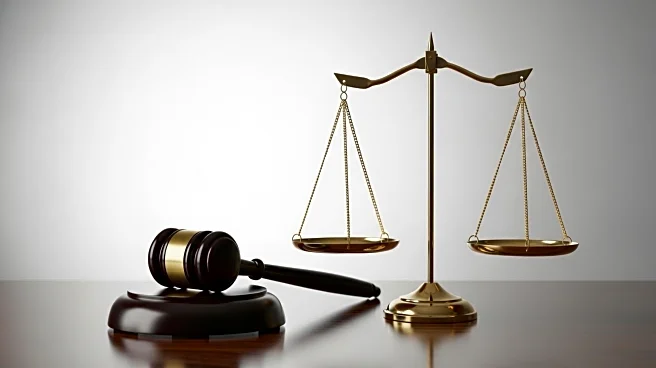What's Happening?
Federal prosecutors are reportedly preparing to ask a grand jury to indict former FBI Director James Comey on charges of perjury. The decision is expected to be made within days, according to individuals familiar with the investigation. This development follows allegations that Comey lied to Congress during his testimony. The Department of Justice is nearing a critical decision point in this high-profile case, which has garnered significant attention due to Comey's previous role in leading the FBI and his involvement in several major investigations.
Why It's Important?
The potential indictment of James Comey could have significant implications for U.S. politics and the justice system. As a former FBI Director, Comey played a pivotal role in several key investigations, including those involving President Trump. An indictment could further polarize political discourse and impact public trust in federal institutions. It may also influence ongoing debates about accountability and transparency within government agencies. Stakeholders in the political and legal arenas are closely monitoring the situation, as it could set a precedent for how former officials are held accountable for their actions.
What's Next?
If the grand jury decides to indict Comey, the case will likely proceed to trial, where evidence and testimonies will be scrutinized. This could lead to a prolonged legal battle, drawing attention from media and political figures. The outcome may affect Comey's legacy and influence future congressional testimonies and investigations. Political leaders and legal experts are expected to weigh in on the implications of the indictment, potentially leading to legislative or procedural changes in how congressional testimonies are conducted.
Beyond the Headlines
The case against Comey raises broader questions about the ethical responsibilities of public officials and the mechanisms in place to ensure accountability. It highlights the challenges in balancing transparency with national security concerns. The situation may prompt discussions on reforming legal standards for congressional testimonies and the role of the DOJ in politically sensitive cases.









